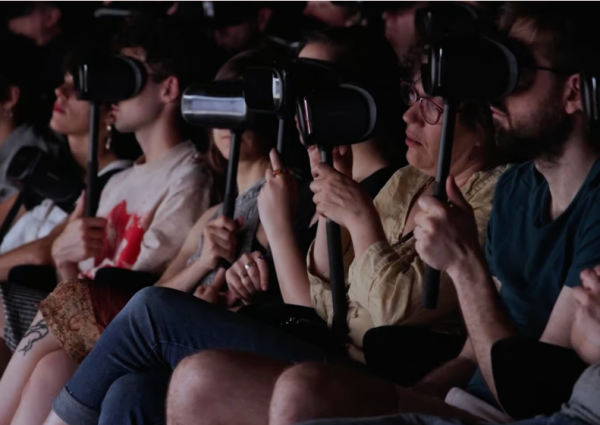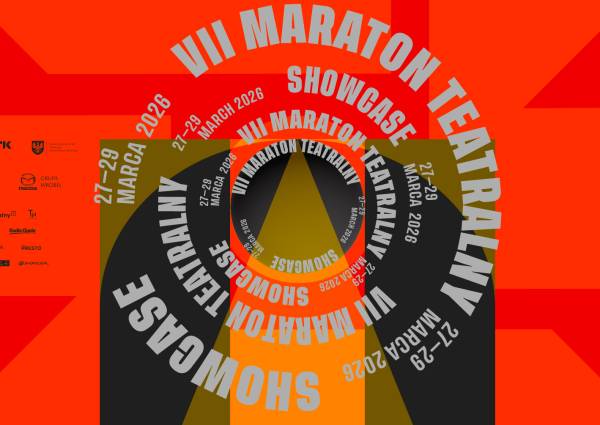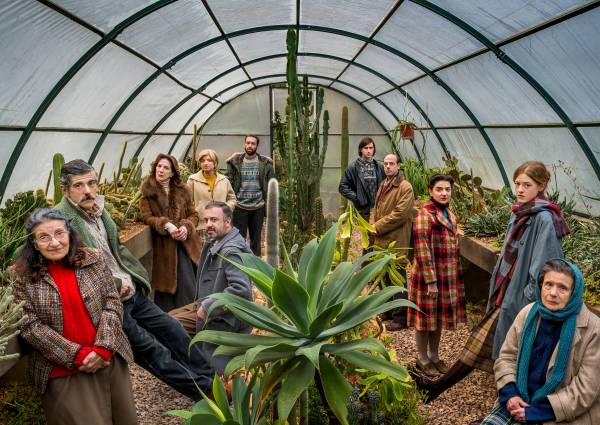The International Forest Festival of the National Theatre of Northern Greece returns to Thessaloniki from 31 May to 13 June with an impressive programme of innovative proposals from the international theatre scene.
This year, the city will host productions from England, France, Belgium, Lebanon, South Africa and Uruguay. The festival programme will be accompanied by a series of parallel activities in the form of workshops and discussions.
In the new era that is taking shape around us, it is imperative that theatre stands up to the dominant discourses and moulds new fields of visibility. It is vital that it focuses on the cracks that are opening up in the hegemonic narratives, creates new ways for and loci where minds can meet, and reinvents new possibilities of coexistence. The artists bring with them the personal experiences with which they attempt to make sense of multiple realities that are finding it hard to coexist in a world of extreme contrasts and marginalized communities.
The artistic committee of the 6th International Forest Festival consists of Savas Patsalidis (professor emeritus of theatre, Aristotle University of Thessaloniki), Prodromos Tsinikoris (director, dramaturg, actor) and Tine Milz (dramaturg, curator and director of the Theater Neumarkt, Zurich). Together, they have drawn up a programme that incorporates dynamic voices and proposals from the international theatre scene. In Milz’s words:
This year's International Forest Festival invites us to focus on the compelling, fragile and transformative power of performance. The world feels like a melodrama of absurdities. Somewhere between horror and wonder, between surrender and resistance, we are swimming — through crises, through the darkness of uncertainty. And yet, in that very in-between, a ground for artistic vision emerges: a place to gather, to exchange, to disagree, to listen. Following the spirit of “Hope in the Dark” [Rebecca Solnit], we embrace the unseen, the unfinished, the yet-to-come—trusting that even amid fracture, seeds of connection and imagination can be sown. In a world vibrating between collapse and reinvention, we turn to artists whose works reach into the deep textures of our time—summoning memory, myth, laughter, grief, and radical tenderness. The festival brings together voices and visions from different continents and artistic languages, proposing performances as shared landscapes of imagination. This edition of the festival gathers voices that speak into the fractures and dreams of our times—including Tamara Cubas (“Offering for a Monster”), Rebecca Chaillon (“Whitewashing”), “Hatched Ensemble” with Mamela Nyamza, Ali Chahrour (“Told by My Mother”), Tim Etchells (“L'Addition”), El Conde de Torrefiel (“I have no name”), and Jaha Koo (“History of Korean Western Theatre”), among others.
We believe deeply in the urgency of language—in its ability to hold beauty, anger, memory, and transformation. Especially in moments of crisis, we long for language that does not explain the world away but dares to make it more visible, more permeable, more alive.
We dream of a language that does not smooth over complexity but lets contradictions breathe; a language that cracks open spaces for listening, trembling, and beginning again.
At the opening of the Festival, we will welcome Logan February with their poetic lecture A Thousand Daemons, which "explores the 'forest' in the tradition of the Yoruba and other West African peoples as a symbolic site of social exile, mythical encounters and transformation; a poetic study of the monstrous and the anarchic as they embrace the material, social and spiritual worlds".
On June 7, Daniel Blanga Gubbay's poetic reading Reading the Sky will focus on the shades the sky assumes as day transitions into night. Drawing material from Arab-Jewish family histories and the literature of the fantastic, he presents the sky as a place of memory, eccentricity and silent resistance.
Two workshops will be held over the course of the festival. On June 7, Tine Milz and Daniel Blanga Gubbay will run a three-hour writing workshop focused on the point of embarkation: the moment when writing begins without knowing where it will end. On June 8, in a physical theatre workshop, the choreographer Ali Chahrour will explore the meaning of mourning through a poetic choreography that comforts and brings solace.
For the artistic committee, the 6th International Forest Festival "becomes a space in which to try out versions of the future, to grapple with questions, to focus on problems, and to celebrate the alternatives that art presents through its fragmented, hesitant, glittering forms".
Detailed information about the event and the final programme of the 6th International Forest Festival will be posted soon on our website, on.ntng.gr.
The platform contains information and material about the performances and the artists featured in the Festival. An interactive calendar allows viewer to explore the various activities the Festival offers day by day, and choose those they find most interesting.






